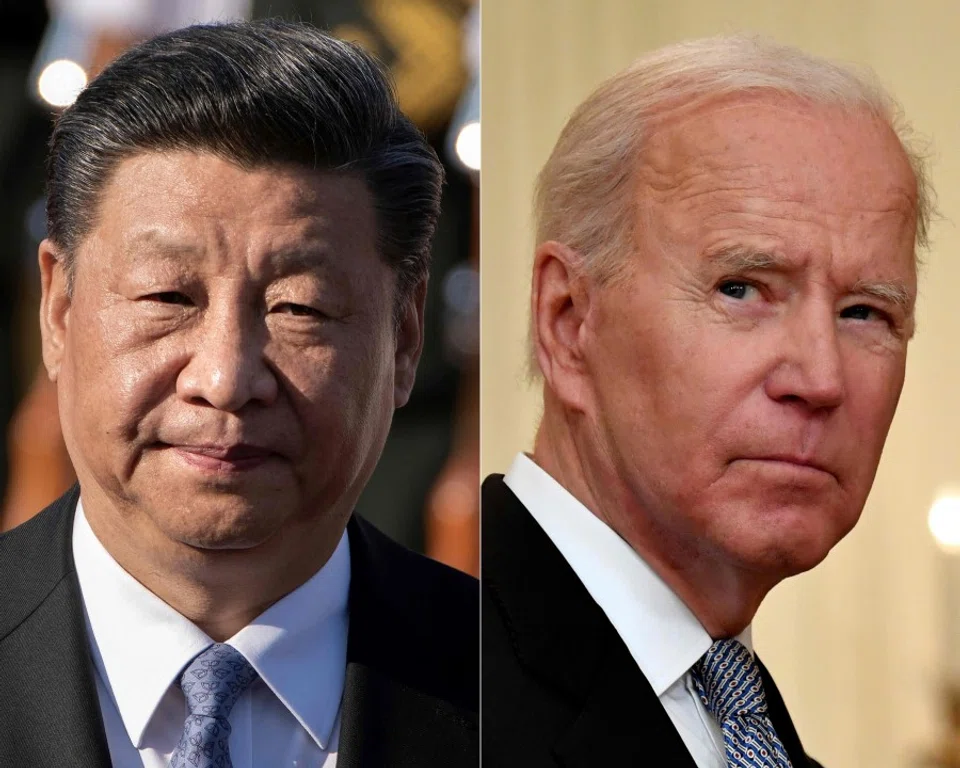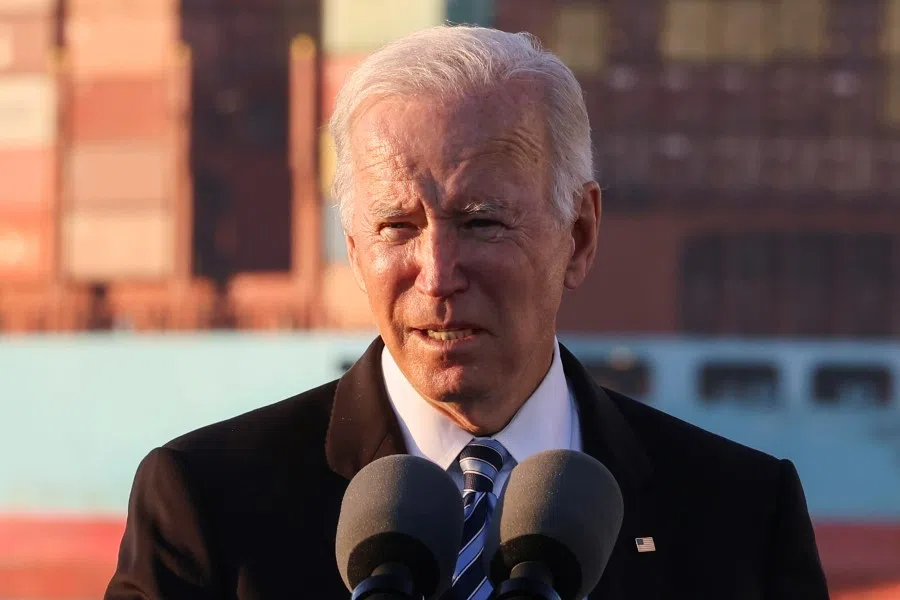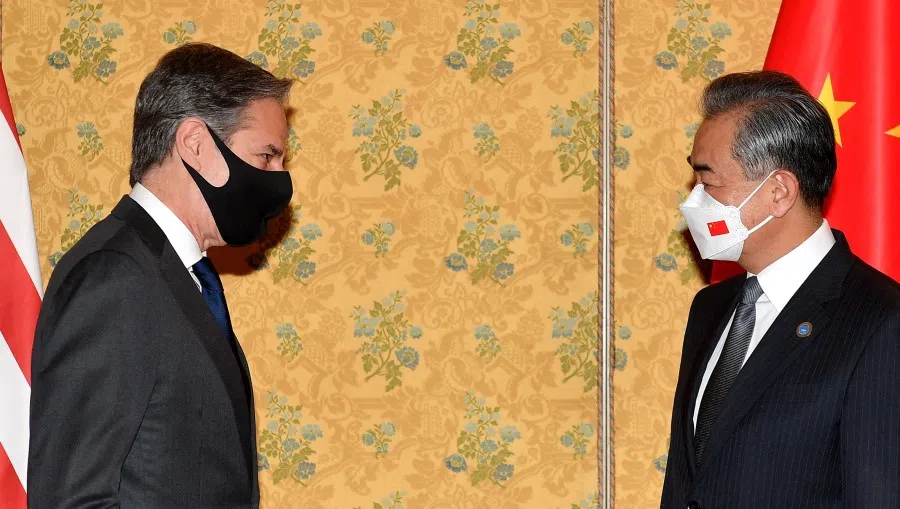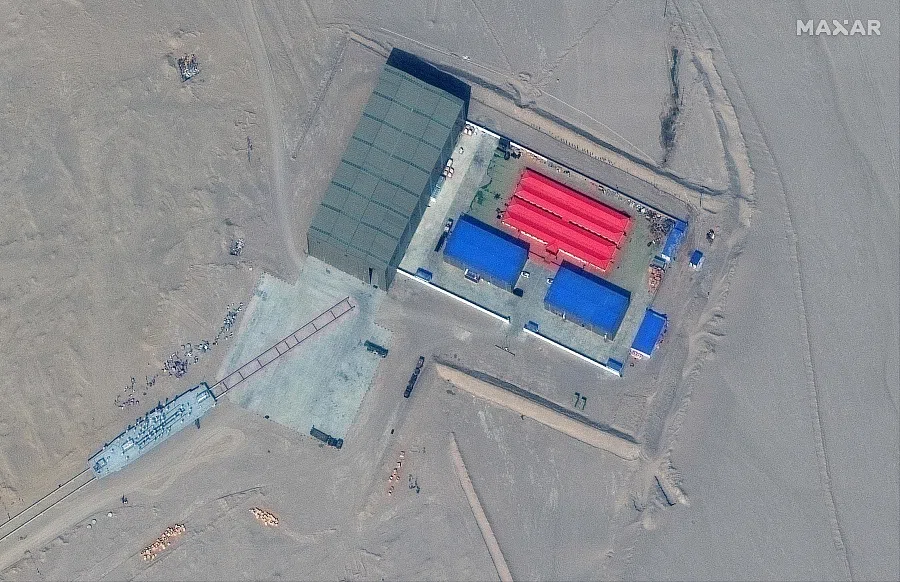Will a Biden-Xi virtual summit change anything?
A virtual summit between US President Joe Biden and Chinese President Xi Jinping will allegedly be held next week. However, with comments from the White House that the meeting is not about deliverables, and the US's continued attacks such as Biden's criticism of China's non-appearance at the recent UN climate change conference in Glasgow, are prospects for major breakthroughs bright? Zaobao correspondent Edwin Ong looks at what the session might bring.

Amid the sixth plenary session of the 19th Central Committee of the Communist Party of China (CPC) this week, the news on 10 November that a long-awaited meeting between Chinese President Xi Jinping and US President Joe Biden is happening next week has removed speculation that the event might be aborted, and given hope that the consensus reached at the China-US meeting in Zurich early last month will be fulfilled. However, there is still a huge question mark over whether this summit will stabilise relations and ease tensions between the two largest economies in the world.
Likewise, it looks unlikely that Biden and Xi will be able to use this virtual summit to reach some sort of understanding and agreement, or even regulate the cooperation, competition, and confrontation between the two countries.
On 9 November, Bloomberg quoted a source saying that the Biden-Xi virtual summit is scheduled for next week, but the exact date has not yet been set. Chinese foreign ministry spokesperson Wang Wenbin said in response to queries on 10 November that both sides are in close contact on arrangements.
In fact, Xi and Biden have only spoken twice on the phone this year, in February and September...

Biden has said before that he and Xi have known each other for over ten years, including more than 24 hours of private meetings and 17,000 miles of travel together. However, going by the frequency of their interactions since Biden took office early this year, they are not as chummy as Biden has described.
In fact, Xi and Biden have only spoken twice on the phone this year, in February and September, while Xi did attend via video conference the Leaders Summit on Climate that Biden led in April, but there has not been a bilateral summit between them.
Also, next week's Biden-Xi meeting would come six months after the in-person summit between Biden and Russian President Vladimir Putin, and it will be virtual, which means it would lack the personal feel of a face-to-face exchange. The only good thing is that there would be no awkward scene of one person wanting to shake hands while the other does not, as happened at the photo op before the meeting between Chinese State Councilor and Foreign Minister Wang Yi and US Secretary of State Antony Blinken in Rome last month.

Managing expectations
White House spokesperson Karine Jean-Pierre reiterated on 8 November that China and the US have an agreement in principle to have a virtual bilateral meeting before the end of the year. She added: "This is part of our ongoing efforts to responsibly manage the competition between our countries, not only - not about seeking specific deliverables." The unspoken meaning is that the meeting might well be fruitless, laying the scene for a possible quiet ending.
Amid the continued confrontation between China and the US, the timing of the meeting next week also fits. At the sixth plenary session, Xi laid the groundwork for his re-election as CPC general secretary; after handling domestic issues, he will be in a stronger position to meet with Biden. On Biden's part, US media revealed that Taiwan is on the invitation list for the Summit for Democracy early next month, while China and Russia are not. The window before the democracy summit sends China-US relations into further uncertainty may be the best time for the meeting between Xi and Biden.
China is trying to create a conducive environment before the two countries meet, which is in line with China's usual Chinese diplomatic style.

Officials have yet to confirm that the Biden-Xi virtual summit will be held next week. But we can infer from Xi's goodwill gestures to the US this week that China is trying to create a conducive environment before the two countries meet, which is in line with China's usual Chinese diplomatic style. On 9 November, the Chinese embassy in the US announced that Xi had sent a congratulatory letter to the National Committee on US-China Relations, which was holding its annual gala dinner in New York that day. Chinese ambassador to the US Qin Gang read the letter aloud at the dinner.
China conciliatory while the US continues to sound warnings
In the letter, Xi emphasised that "following the principles of mutual respect, peaceful coexistence and win-win cooperation" China was ready to work with the US to enhance exchanges and cooperation in various areas and to properly manage differences to bring China-US relations back to the right track of "sound and steady development".
In contrast, the Biden administration has continued to attack China on the issues of Taiwan and the Chinese military threat. On 9 November, Biden announced that he would continue to enforce a Trump-era ban that prohibits US investments in Chinese companies related to the People's Liberation Army (PLA).
Recently, the US military has been concerned about the number of nuclear warheads China has and the latter's hypersonic missile test. In fact, the US frequently releases satellite images of suspected missile silo constructions in the deserts of western China and airs its concerns about a new target range set up by the PLA with mock-ups of a US Navy aircraft carrier and destroyer. It even released information about the progress of the PLA's third aircraft carrier, in a bid to highlight China's growing threat to regional stability.

The US did not put the brakes on attacking Beijing on the Taiwan issue either. As the sixth plenary session was taking place, a 13-member delegation of US lawmakers and military officials suddenly landed in Taiwan by military plane on 9 November. The delegation included US Republican Senator John Cornyn, who revealed in August that 30,000 US troops were stationed in Taiwan. This move challenged mainland China's bottom line and triggered the PLA Eastern Theater Command to conduct a joint combat readiness patrol near the Taiwan Strait to further improve the joint combat capability of multiple military services and branches.
This week, the Biden administration also announced that under the G7 Build Back Better World (B3W) initiative which aims to counter China's Belt and Road Initiative, the US plans to invest in five to ten large infrastructure projects around the world in January next year.
It is more likely that they will knit their brows and look stern and uncompromising at the virtual summit instead.
After Biden called Xi a "thug" during the former's presidential campaign, he said that both China and Russia support autocracy at his first press conference in March after taking office. Last week, during the COP26 climate change conference in Glasgow, Biden criticised Xi again, saying that it was a "big mistake" for Xi not to attend the conference. He questioned, "How do you do that and claim to be able to have any leadership now?"
With the US continuing to attack China in all aspects before the virtual summit, it is difficult to expect Biden to ensure that China-US competition will not intensify and evolve into conflict when he meets his "old friend" next week. It is more likely that they will knit their brows and look stern and uncompromising at the virtual summit instead.
Related: If Xi Jinping and Joe Biden meet this week, it won't be just about climate change | When will Biden call China? | 30,000 US troops in Taiwan? | China displays its new weapons amid cross-strait tensions | Taiwan and Indo-Pacific are the primary targets of China's hypersonic glide vehicle | What can China and the US cooperate on now? | Uniting China under Xi Jinping to build a modern socialist country: CPC to pass new 'historical resolution' at sixth plenum


![[Big read] When the Arctic opens, what happens to Singapore?](https://cassette.sphdigital.com.sg/image/thinkchina/da65edebca34645c711c55e83e9877109b3c53847ebb1305573974651df1d13a)


![[Video] George Yeo: America’s deep pain — and why China won’t colonise](https://cassette.sphdigital.com.sg/image/thinkchina/15083e45d96c12390bdea6af2daf19fd9fcd875aa44a0f92796f34e3dad561cc)